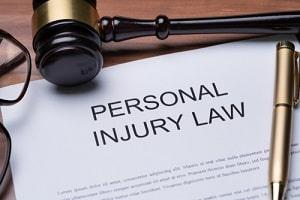121 S. Wilke Road, Suite 301, Arlington Heights, IL 60005
Home and Hospital Visits for Your Convenience
Serving Clients Across 7 Illinois Locations
How Is Negligence Defined in an Illinois Personal Injury Lawsuit?

One of the most crucial parts of any personal injury lawsuit is proving negligence. In a medical malpractice suit, for example, a patient may only collect damages if the healthcare professional in question was negligent in his or her treatment of the patient. Similarly, a property owner or business owner who invites guests onto his property displays negligence if the building or grounds have obvious dangers that cause a guest or patron to suffer an injury.
When negligence causes an innocent party to experience damages like lost wages at work, expensive medical bills, or ongoing medical expenses, it is only fair that the person who is liable for the damages pays for them. Through a personal injury lawsuit, you may be able to collect compensation for damages, but the first step is proving negligence.
Negligence Can Include Actions and Failure to Act
For the purposes of personal injury law, negligence can be defined as the failure to exercise reasonable care and attention toward others in a way that causes them damages. "Reasonable" in this context means that it is what most other people would do in similar circumstances. For example, say a shop owner notices an exposed live wire and does not repair it, but instead continues to allow customers to go near the wire. A patron is then injured after accidentally touching the wire. The shop owner would probably be considered negligent because a reasonable person would not allow unsuspecting customers near such a hazard. In some circumstances, a crime, such as reckless driving, can also constitute negligence because a reasonably careful person would not drive recklessly.
Required Components for a Successful Negligence Claim
If you wish to make a claim for damages caused by another’s negligence, you and your legal counsel must prove several things. First, you must show that the alleged negligent party had a "duty of care" to you. In the scenario above, the negligent shop owner has a duty to keep his shop safe for customers. Next, in order to prove negligence, you must show that the defendant’s action or inaction was negligent. In other words, it is not what a reasonably careful person would have done or not done in similar circumstances. To bring a successful personal injury lawsuit against a negligent party, you must also prove that the defendant’s negligent behavior either directly or indirectly caused your injury or property damage. Finally, the injuries you sustained must be remediable through monetary compensation. Damages that qualify generally include things like medical bills, lost wages, ongoing medical expenses like physical therapy, as well as physical and mental suffering.
Contact an Arlington Heights Personal Injury Attorney
At the offices of Newland & Newland, L.L.P., we understand the challenges that you may be facing if you were injured as the result of someone else’s negligence. With this in mind, we are ready to help you build a case so that you can collect full compensation under the law. To learn more, or to schedule a free consultation with one of our experienced Schaumburg personal injury lawyers, call us today at 847-797-8000. We will do everything we can to get you the favorable outcome you deserve so you can move on with your recovery.
Sources:
https://dictionary.law.com/Default.aspx?selected=1314
https://courts.illinois.gov/CircuitCourt/CivilJuryInstructions/10.00.pdf

 Spanish
Spanish Cantonese
Cantonese



















